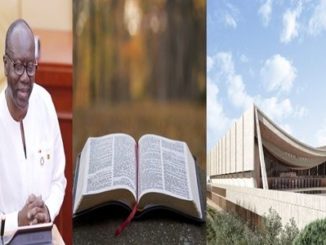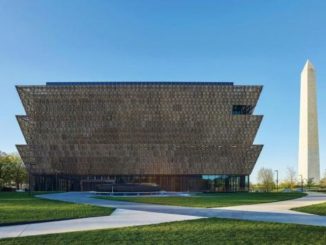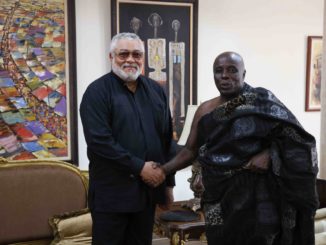
Thousands of African artworks taken during the colonial era line the cabinets and halls of UK institutions, from the Wallace Collection to the V&A museum. They include the Benin bronzes, the Ghanaian Asante gold, and treasures stolen from the Ethiopian emperor Tewodros II during the 1868 Battle of Magdala.
Now, following groundbreaking moves by France to return some of the works looted by its colonial forces, these museums are facing calls from the African art world for an audit of who has what – and how much longer they should keep them.
“It’s a step in the right direction. France has taken a bold position,” said Iheanyi Onwuegbucha, a curator at Lagos’s Centre for Contemporary Art, saying that the UK should follow suit. “Even if it’s never ever implemented, it would be good to know, at least, how many objects from Nigeria are in British collections.”
Many say it should also be a priority for the British government. Sylvester Ogbechie, a Nigerian professor of African arts and visual culture at the University of California, Santa Barbara, said Macron’s report was the first time a major western leader acknowledged there was something wrong with European institutions holding looted works, and was a “very positive step”. He said however he was not optimistic other countries would do the same. He said racist attitudes that underpinned colonialism had mostly not changed. “The racial element of this is the primary issue. We need to stop talking about it in terms of capabilities or morality or anything of that sort. The simple reason is that we’re dealing with the context of white supremacy.
“The western world for some odd reason has never accepted that Africans have the rights to their bodies or their own resources.”

The former curator of the British Museum’s Africa galleries, Chris Spring, said France had “every right and reason to make that report”, and the “very contentious collections” in the UK should be looked at. But he said the British Museum was a “museum of the world for the world”.
“If Africa is not represented, that is a disaster. I think we need to remember London is a global African city, arguably the biggest African city in the world, if you think of all the different people. It’s really important that people of African heritage living in the UK and in Europe can see cultural artefacts of their own heritage.”
The best-known African pieces in the British Museum are the Benin bronzes – intricate metal plaques that decorated the royal palace of Benin but were looted from what is now Nigeria by British troops in 1897. The museum has long resisted calls to return the bronzes, but several experts thought the French move would increase the pressure on it. Days before the report was published, the museum announced it would loan some of the most celebrated pieces for an exhibition at the planned Benin Royal Museum in Nigeria’s Edo State within three years.
Ethics aside, the practicalities of potential restitution concern some. Giles Peppiatt, Bonhams’ director of modern and contemporary African art, said that commissioning the French report was morally right, but questioned its viability. “It’s a laudable principle, but is it something that can be done in an orderly and correct way? It’s not as easy as Macron says – it’s a tiny bit reductive.”
Onwuegbucha echoed those concerns, saying many African countries needed to seriously upgrade their facilities before they could receive the works.
“Nigeria is not ready to receive anything,” he said, describing rundown, leaking museums and insect-infested storage facilities of the country’s public museums and galleries. Years without investment in cultural institutions had taken their toll, he said: “It’s beyond shame, what we have.”
Onwuegbucha added that the pedagogical approach needed to change, claiming that guides working in the museums wrongly tell visitors that the objects were used as “juju”, or black magic, presenting their own, often religious, prejudices as fact. “They don’t present these objects to the public as cultural heritage but rather as a representation of the evil past of our ancestors.”
Ogbechie however, said that if the roles were reversed, the conversation would be very different. “This is essentially as if the Benin kingdom went to London and raided Buckingham Palace,” he said. “And then much later we are discussing this issue and we’re saying, well they may have raided Buckingham Palace but Benin has a right to the works they took from Buckingham Palace because they have it anyway.”
–
Source: www.theguardian.com




I am not real wonderful with English but I find this real leisurely to understand.